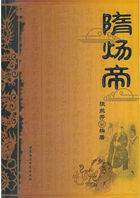There is a unity, an unwavering creative purpose, about some at least of Hawthorne's romances, that impresses itself on the most indifferent reader; and the very restrictions and weaknesses of the man served perhaps to strengthen the vivid and single impression of his works. There is nothing of this kind in Hugo: unity, if he attains to it, is indeed unity out of multitude; and it is the wonderful power of subordination and synthesis thus displayed, that gives us the measure of his talent. No amount of mere discussion and statement, such as this, could give a just conception of the greatness of this power. It must be felt in the books themselves, and all that can be done in the present essay is to recall to the reader the more general features of each of the five great romances, hurriedly and imperfectly, as space will permit, and rather as a suggestion than anything more complete.
The moral end that the author had before him in the conception of NOTRE DAME DE PARIS was (he tells us) to "denounce" the external fatality that hangs over men in the form of foolish and inflexible superstition. To speak plainly, this moral purpose seems to have mighty little to do with the artistic conception; moreover it is very questionably handled, while the artistic conception is developed with the most consummate success. Old Paris lives for us with newness of life: we have ever before our eyes the city cut into three by the two arms of the river, the boat- shaped island "moored" by five bridges to the different shores, and the two unequal towns on either hand. We forget all that enumeration of palaces and churches and convents which occupies so many pages of admirable description, and the thoughtless reader might be inclined to conclude from this, that they were pages thrown away; but this is not so: we forget, indeed, the details, as we forget or do not see the different layers of paint on a completed picture; but the thing desired has been accomplished, and we carry away with us a sense of the "Gothic profile" of the city, of the "surprising forest of pinnacles and towers and belfries," and we know not what of rich and intricate and quaint. And throughout, Notre Dame has been held up over Paris by a height far greater than that of its twin towers: the Cathedral is present to us from the first page to the last; the title has given us the clue, and already in the Palace of Justice the story begins to attach itself to that central building by character after character. It is purely an effect of mirage; Notre Dame does not, in reality, thus dominate and stand out above the city; and any one who should visit it, in the spirit of the Scott-tourists to Edinburgh or the Trossachs, would be almost offended at finding nothing more than this old church thrust away into a corner. It is purely an effect of mirage, as we say; but it is an effect that permeates and possesses the whole book with astonishing consistency and strength. And then, Hugo has peopled this Gothic city, and, above all, this Gothic church, with a race of men even more distinctly Gothic than their surroundings.
We know this generation already: we have seen them clustered about the worn capitals of pillars, or craning forth over the church-leads with the open mouths of gargoyles. About them all there is that sort of stiff quaint unreality, that conjunction of the grotesque, and even of a certain bourgeois snugness, with passionate contortion and horror, that is so characteristic of Gothic art. Esmeralda is somewhat an exception; she and the goat traverse the story like two children who have wandered in a dream. The finest moment of the book is when these two share with the two other leading characters, Dom Claude and Quasimodo, the chill shelter of the old cathedral. It is here that we touch most intimately the generative artistic idea of the romance: are they not all four taken out of some quaint moulding, illustrative of the Beatitudes, or the Ten Commandments, or the seven deadly sins? What is Quasimodo but an animated gargoyle? What is the whole book but the reanimation of Gothic art?
It is curious that in this, the earliest of the five great romances, there should be so little of that extravagance that latterly we have come almost to identify with the author's manner. Yet even here we are distressed by words, thoughts, and incidents that defy belief and alienate the sympathies.
The scene of the IN PACE, for example, in spite of its strength, verges dangerously on the province of the penny novelist. I do not believe that Quasimodo rode upon the bell; I should as soon imagine that he swung by the clapper.
And again the following two sentences, out of an otherwise admirable chapter, surely surpass what it has ever entered into the heart of any other man to imagine (vol. ii. p. 180):
"Il souffrait tant que par instants il s'arrachait des poignees de cheveux, POUR VOIR S'ILS NE BLANCHISSAIENT PAS."
And, p. 181: "Ses pensees etaient si insupportables qu'il prenait sa tete a deux mains et tachait de l'arracher de ses epaules POUR LA BRISER SUR LE PAVE."
One other fault, before we pass on. In spite of the horror and misery that pervade all of his later work, there is in it much less of actual melodrama than here, and rarely, I should say never, that sort of brutality, that useless insufferable violence to the feelings, which is the last distinction between melodrama and true tragedy. Now, in NOTRE DAME, the whole story of Esmeralda's passion for the worthless archer is unpleasant enough; but when she betrays herself in her last hiding-place, herself and her wretched mother, by calling out to this sordid hero who has long since forgotten her - well, that is just one of those things that readers will not forgive; they do not like it, and they are quite right; life is hard enough for poor mortals, without having it indefinitely embittered for them by bad art.
We look in vain for any similar blemish in LES MISERABLES.















